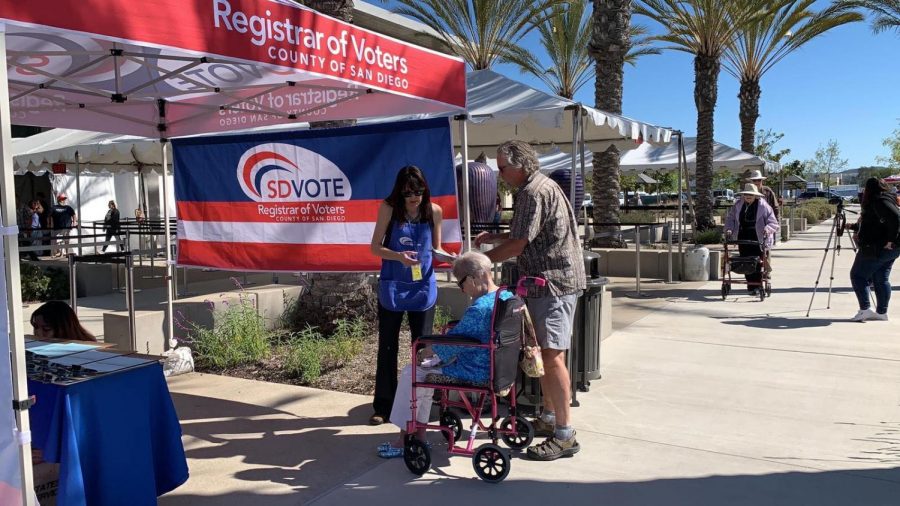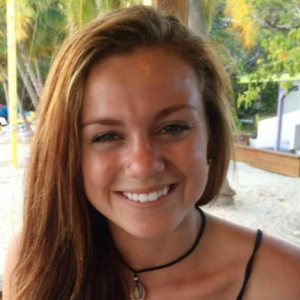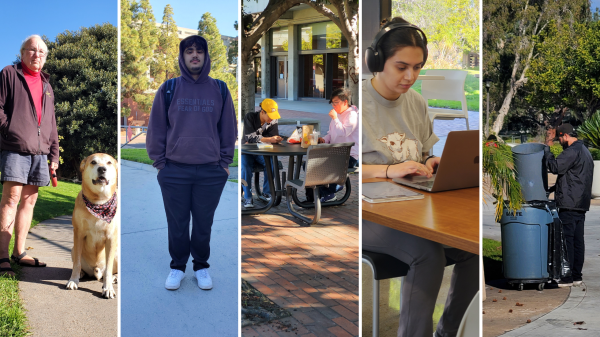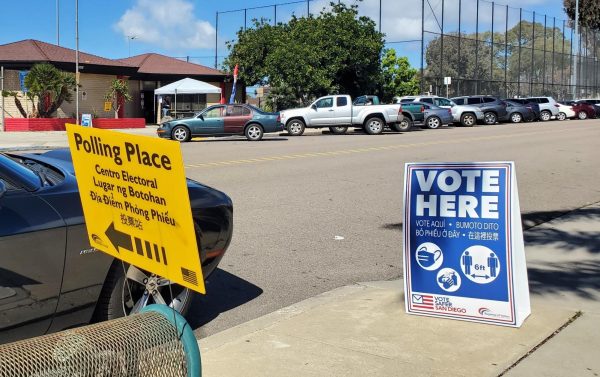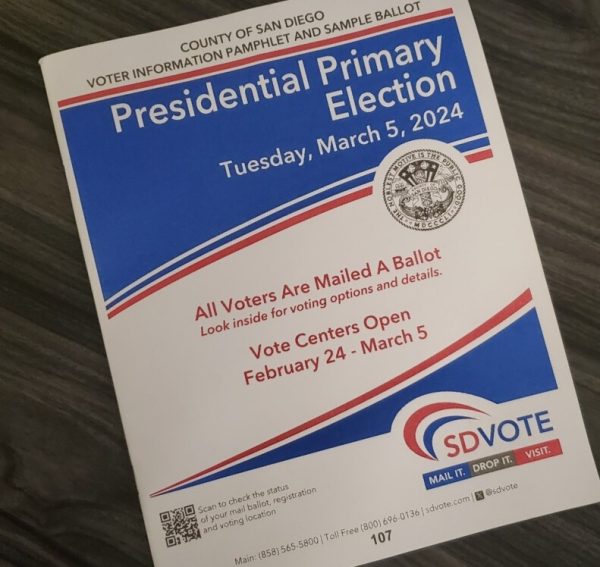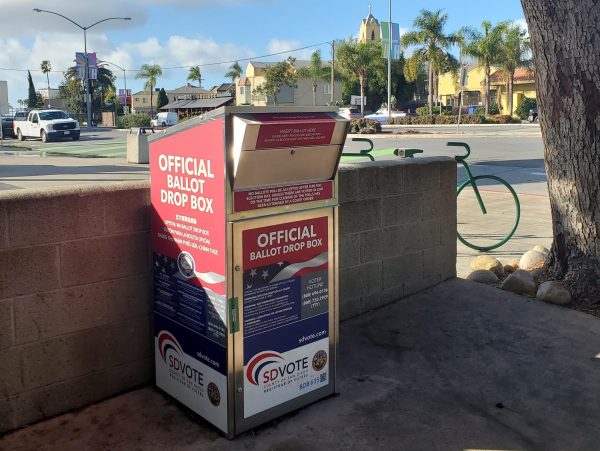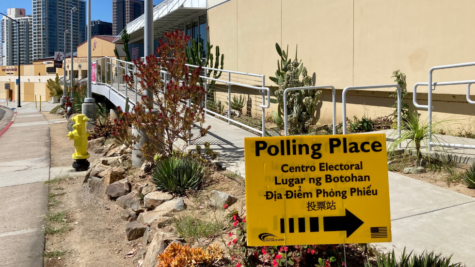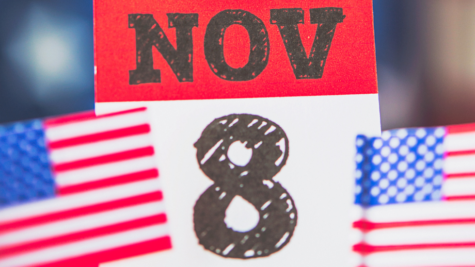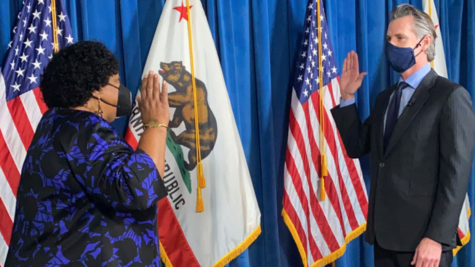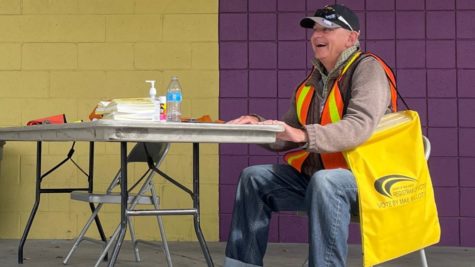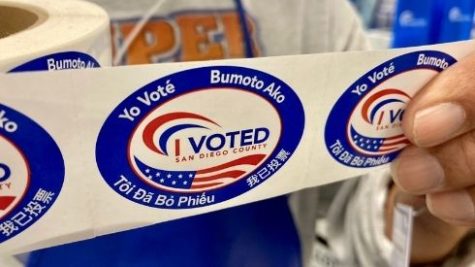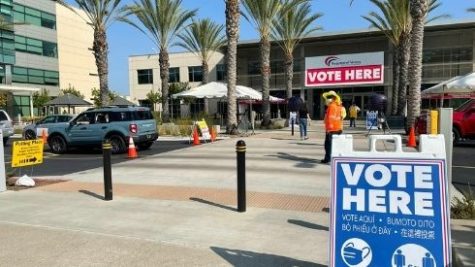Prepping for the primaries
A quick guide to the upcoming primaries
The San Diego Registrar of Voters office is the headquarters for elections in the region. Photo by Vicky Pineda/City Times
February 28, 2020
UPDATE: This story has been edited to reflect changes to the democratic presidential candidates’ running in California. This story will be published in the print edition on Tuesday, Mar. 3.
This year, the California presidential primaries will be held in March instead of June.
Unlike in 2012 and 2016, the 2020 primaries will give California voters the ability to cast their votes three months earlier.
Governor Jerry Brown signed a new bill into law that allows California’s over 200 million voters more access in deciding their parties’ candidates, where as in 2016 Hillary Clinton and Donald Trump were already the presumptive nominees of their parties by the time the California primaries took place.
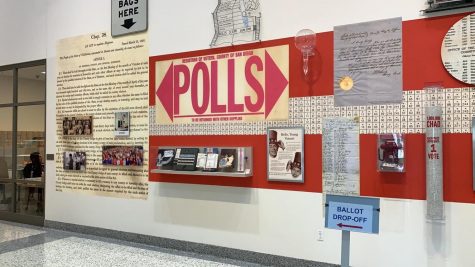
Late voters can still vote, with same-day registration. Photo by Vicky Pineda/City Times
This bill, known as the Prime Time Primary Act, is designed to give California voters more say on issues that directly affect California residents, such as immigration.
The Prime Time Primary Act will be pushing up congressional primary elections to the same day as the presidential primaries on March 3.
“I’m very happy the (California) primaries are being held earlier,” dance major Devin Mayor said. “It makes me feel like I have more of (a) voice.”
Bernie Sanders, Pete Buttigieg, Joe Biden, Elizabeth Warren and Amy Klobuchar are among the current Democratic nominees, as of Feb. 27. President Donald Trump registered for re-election the day of his inauguration on Jan. 20, 2017.
The ninth Democratic presidential debate was held on Feb. 19 in Las Vegas before another took place on Feb. 25 in Charleston, South Carolina. Another is planned in Phoenix in March.
The Voter Information Guide is available to registered voters by contacting your county elections office, or by visiting the website at voterguide.sos.ca.gov.
Additionally, the California voters hotline can be reached at (800) 345-VOTE.
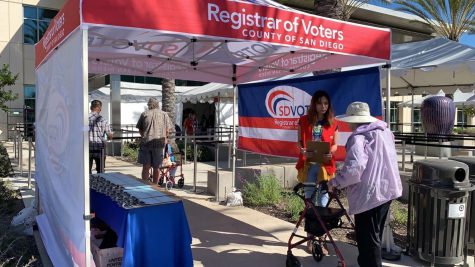
“Super Tuesday” will be on March 3, the day 14 states and a U.S. Territory will have its primary elections. Photo by Vicky Pineda/ City Times
Late voters who did not make the Feb. 18 deadline can register to vote on the day of, although long lines and wait times are expected. The last day to apply for a vote-by-mail ballot is Feb. 25.
California military and overseas voters can register to vote and request an absentee ballot by visiting registertovote.ca.gov, and ballots can be mailed, faxed or emailed to the voter’s location.
Although proof of identification is not required to be shown for California voters, the Secretary of State’s website recommends first-time voters bring at least one form of identification when voting at the in-person polling places.
Those who are registered under no party preference will not receive a Democratic ballot and must specifically request one through sdvote.com. Registered voters then fill out a Nonpartisan Ballot Crossover Request Form and email it to the Registrar of Voters at [email protected].
No-party-preference voters who want to vote in the Republican, Green or Peace of Freedom parties must re-register to vote again with those parties.
Registered Republicans can only vote in the Republican primary.
For further information regarding the presidential and congressional California primaries, California residents can visit sos.ca.gov.


